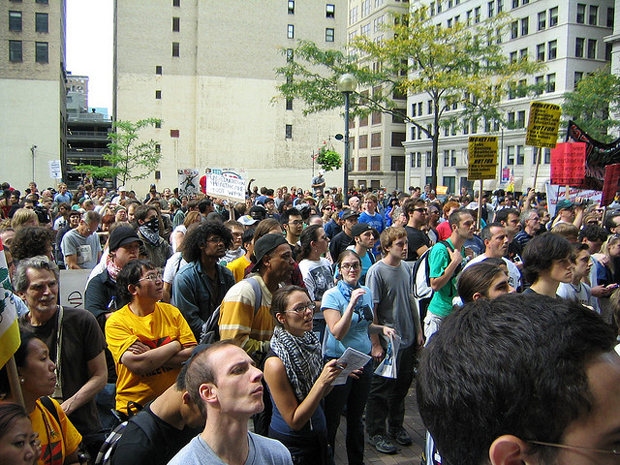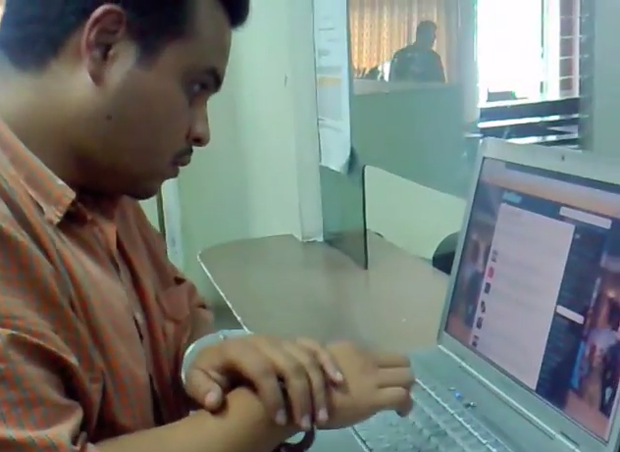19 Oct 2015 | Asia and Pacific, China, mobile, News and features

(Photo illustration: Shutterstock)
With UK-China relations warming, the president of the People’s Republic of China, Xi Jinping, will pay a state visit to the UK from 20-23 October. The UK government hopes the visit will help finalise multibillion-pound deals for Chinese state-owned companies to contribute to the building of two British nuclear power plants.
Many — including the Dalai Lama — are concerned that Prime Minister David Cameron and Chancellor George Osborne are putting the desire for profit above concern for human rights.
Xi may be staying in luxury at Buckingham Palace during his visit, but here are just five examples of how respect for free speech in China doesn’t get past the front door:
1. Locking up artists
The soccer-loving Chinese president is due to visit Manchester City Football Club’s stadium with Cameron during his visit. But will he make time for the new exhibition by Chinese artist and dissident Ai Weiwei in London? We won’t hold our breath.
The major retrospective of the artist’s work is currently on show at the Royal Academy of Arts. Ai — whose work is famous for addressing human rights abuses and corruption — has been harassed, beaten, placed under house arrest and imprisoned.
The current London exhibition almost didn’t go ahead as the British Embassy in Beijing turned down Ai’s request for a business visa in connection with his criminal conviction for tax fraud — an accusation he denies. British Home Secretary Theresa May eventually overturned the embassy’s decision, but only after a mass public outcry. This shouldn’t be the height of the British government’s efforts to address Chinese human rights abuses.
2. The use of online “opinion monitors”
China’s Terracotta Army, the 8,000-strong force of sculptures depicting warriors and horses, was purpose-built to protect emperor Qin Shi Huang, who died in 210 BC, in his afterlife. In the modern day, China’s army of “opinion monitors”, which has been purpose-built to protect China’s current leaders from criticism and dissent, dwarfs anything the Qin dynasty could muster.
Last year, Index on Censorship reported that the Chinese government is expanding its censorship and monitoring of web activity with a new training programme for an estimated two million flies on the firewall.
China’s hundreds of millions of web users increasingly use blogs to condemn the state, but posts are routinely deleted by government employees. In 2012, monitors banned more than 100 search terms relating to the 25th anniversary of the Tiananmen Square protest of 1989 and even shut down Google services.
3. Banning books
Often overshadowed by China’s internet censorship, we shouldn’t forget that Chinese authorities have a rich history of restricting free expression in literature. In 1931, Lewis Carroll’s Alice’s Adventures in Wonderland was banned for its portrayal of anthropomorphised animals for fear children would regard humans and animals as equal. During Chairman Mao Zedong’s Cultural Revolution, all aspects of arts and culture had to promote and aid the revolution. Libraries full of historical and foreign texts were destroyed and books deemed undesirable were burned.
The country’s post-Mao transition has been marked by a commitment to “modernising”. While the Chinese populace has access to more information than ever before, their leaders’ continuation of banning books on grounds of non-conformity and deviance are anything but modern.
Publications which are still banned — often for perceived politically incorrect content — include the memoirs of Li Rui, a retired Chinese politician and dissident who caused a stir in the CCP by calling for political reform; Lung Ying-tai’s Big River, Big Sea about the Chinese Civil War; and Jung Chang’s best-selling Wild Swans, a history that spans a century, recounting the lives of three female generations in the author’s family.
4. Detaining activists
Recent years have been marked with an intensification of the crackdown on dissent. On 6 March 2015, just days before International Women’s Day, the Chinese government detained a number of high-profile feminist activists. They were accused of creating a disturbance and, if convicted, could have received three-year prison sentences.
The women had been linked to several actions over the years which highlight issues such as domestic violence and the poor provision of women’s toilets, obvious embarrassments to the authorities.
As a result of their detention, China’s small, but increasingly vocal feminist movement was dealt a heavy blow. Demonstrations were cancelled and debate was effectively silenced. Five of the activists were released fairly quickly, but five more were in prison until 13 April, with two being denied treatment for serious medical conditions while in custody.
5. Repressing Uyghur Muslims
China continues to persecute the largely Muslim minority Uyghurs of Xinjiang. A tough system of policies and regulations deny Uyghurs religious freedom and by extension freedom of expression, association and assembly.
The abuse of national security and anti-terror laws to persecute Uyghurs and further deny them freedom of expression was highlighted in the recent ban by the Chinese authorities on 22 Muslim names in Xinjiang in an apparent attempt to discourage extremism among the region’s Uyghur residents. Many children were barred from attending school unless their names were changed.
Ryan McChrystal is the assistant online editor at Index on Censorship
18 Sep 2015 | mobile, Volume 42.03 Autumn 2013
In conjunction with the Cambridge Festival of Ideas 2015, we will be publishing a series of articles that complement many of the upcoming debates and discussions. We are offering these articles from Index on Censorship magazine for free (normally they are held within our paid-for archive) as part of our partnership with the festival. Below is an article by Jemimah Steinfeld and Hannah Leung on the social benefits system in China, taken from the autumn 2013 issue. This article is a great starting point for those planning to attend the Hidden Voices; Censorship Through Omission session at the festival.
Index on Censorship is a global quarterly magazine with reporters and contributing editors around the world. Founded in 1972, it promotes and defends the right to freedom of expression.
When Liang Hong returned to her hometown of Liangzhuang, Henan province, in 2011, she was instantly struck by how many of the villagers had left, finding work in cities all across China. It was then that she decided to chronicle the story of rural migrants. During the next two years she visited over 10 cities, including Beijing, and interviewed around 340 people. Her resultant book, Going Out of Liangzhuang, which was published in early 2013, became an overnight success. In March it topped the Most Quality Book List compiled by the book channel of leading web portal Sina.
Liang’s book is unique, providing a rare opportunity for migrants to narrate their stories. They have been described as san sha (scattered sand) because they lack collective strength and power to change their circumstance. “They are invisible members of society,” Liang told Index. “They have no agency. There is a paradox here. On one hand, villagers are driven away from their homes to find jobs and earn money. But on the other hand, the cities they go to do not have a place for them.”
The central reason? China’s hukou, or household registration system. The hukou, which records a person’s family history, has existed for around 2,000 years, originally to keep track of who belonged to which family. Then, in 1958 under Mao Zedong, the hukoustarted to be used to order and control society. China’s population was divided into rural and urban communities. The idea was that farmers could generate produce and live off it, while excess would feed urban factory workers, who in turn would receive significantly better benefits of education, health care and pensions. But the economic reforms starting in the late 1970s created pressure to encourage migration from rural to urban areas. Today 52 per cent of the population live in a metropolis, with a predicted rise to 66 per cent by 2020.
In this context authorities have debated making changes to the system, or eradicating it altogether. In the 1990s some cities, including Shanghai, Shenzhen and Guangzhou, started to allow people to acquire a local hukou if they bought property in the city or invested large quantities of money. In Beijing specifically, a local hukou can be acquired by joining the civil service, working for a state-owned company or ascending to the top ranks of the military.
The scope of these exceptions remains small, though, and an improvement is more a rhetorical statement than a reality. “China has been talking about reforming the hukousystem for the last 20 years. Most hukou reform measures so far are quite limited and tend to favour the rich and the highly educated. They have not changed much of the substance,” University of Washington professor Kam Wing Chan, a specialist in Chinese urbanisation and the hukou, told Index.
Thus some 260 million Chinese migrants live as second-class citizens. Shanghai, for example, has around 10 million migrant workers who cannot access the same social services as official citizens.
Of the social services, education is where the hukou system particularly stings. Fully-funded schooling and entrance exams are only offered in the parents’ hometown, where standards are lower and competition for university places higher. Charitable schools have sprung up, but they are often subject to government crackdown. Earlier this year one district in Beijing alone pledged to close all its migrant schools.
It’s not just in terms of social services that migrants suffer. Many bosses demand a local hukou and exploit those without. A labour contract law passed in 2008 remains largely ineffective and the majority of migrants work without contracts. Indeed, it was only in 2003 that migrants could join the All-China Federation of Trade Unions (ACFTU), and to this day the ACFTU does little to recruit them.
The main official channel to voice discontent is to petition local government. Failing that, these ex-rural residents could organise protests or strikes. Given that neither free speech nor the right to assembly is protected in China, all of these options remain largely ineffective, and relatively unlikely. In a rare case in Yunnan province, southwest China, tourism company Xinhua Shihaizi owed RMB8 million (US$1.3 million) to 500 migrant workers for a construction project. With no one fighting their battle, children joined parents and held up signs in public. In this case the company was fined. Other instances are less successful, with reports of violence either at the hands of police or thugs hired by employers being rife.
“Many of them fight or rebel in small ways to get limited justice, because they cannot fight the system on a larger scale,” noted Liang. “For example, my uncle told me that he would steal things from the factory he worked at to sell later. This was a way of getting back at his boss, who was a cruel man.” In lieu of institutional support, NGOs step in. Civil society groups have been legalised since 1994, providing they register with a government sponsor. This is not always easy and migrant workers’ organisations in particular are subject to close monitoring and control. Subsequently only around 450,000 non-profits are legally registered in China, with an estimated one million more unregistered.
But since Xi Jinping became general secretary of the Communist Party of China in March, civil society groups have grown in number. Index spoke to Geoff Crothall from China Labour Bulletin, a research and rights project based in Hong Kong. They work with several official migrant NGOs in mainland China. Crothall said that while these groups have experienced harassment in the past, there has been nothing serious of late.
Migrants themselves are also changing their approach. “Young migrant workers all have cell phones and are interested in technology and know how to use social media. So certainly things such as social media feed Weibo could be a way for them to express themselves,” Liang explained.
It’s not just in terms of new technology that action is being taken. In Pi village, just outside of Beijing, former migrant Sun Heng has established a museum on migrant culture and art. Despite being closely monitored, with employees cautioned by officials against talking to foreigners, it remains open and offers aid to migrants on the side.
There are other indications that times are changing. China’s new leaders have signalled plans to amend the hukou system later this year. Whether this is once again hot air is hard to say. But they are certainly allowing more open conversation about hukou policy reform. Just prior to the release of Liang’s book, in December 2012 the story of 15-year-old Zhan Haite became headline news when Zhan, her father and other migrants took to Shanghai’s People’s Square with a banner reading: “Love the motherland, love children”, in response to not being allowed to continue her education in the city.
Initially there was a backlash. The family were evicted from their house and her father was imprisoned for several weeks. Hostility also came from Shanghai’s hukou holders, who are anxious to keep privileges to themselves. Then something remarkable happened: Haite was invited to write an op-ed for national newspaper China Daily, signalling a potential change in tack.
It’s about time. The hukou system, which has been labelled by some as a form of apartheid, is indefensible on both a moral and economic level in today’s China. Its continuation stands to threaten the stability of the nation, as it aggravates the gulf between haves and have-nots. Reform in smaller cities is a step in the right direction, but it’s in the biggest cities where these gaps are most pronounced. And as the migration of thousands of former agricultural workers to the cities continues, that division is set to deepen if nothing else is done.
Portrait of a paperless and powerless worker
Deng Qing Ning, 37, has worked as an ayi in Beijing for the last seven years. At the moment she charges RMB15 (US$2.40) per hour for her routine cleaning services, though she is thinking of increasing her rates to RMB20 to match the market. She hasn’t yet, for fear that current clients will resist.
The word ayi in Mandarin can be used as a generic term for auntie, but it also refers to a cleaner or maid. Most ayi perform a gamut of chores, from taking care of children to cleaning, shopping and cooking.
While ayi in cities like Hong Kong are foreign live-in workers with a stipulated monthly minimum wage (currently HK$3920, US$505), domestic help in China hails from provinces outside of the cities they work. In places like Beijing and Shanghai, the hourly services of non-contractual ayi cost the price of a cheap coffee.
Deng’s story is typical of many ayi who service the homes of Beijingers. She was born in 1976 in a village outside Chongqing, in China’s southwestern Sichuan province, where her parents remain. She came to Beijing in 2006 to join her husband. He had moved up north to find work in construction after the two wed in 2004.
“In Beijing, there are more regulations and more opportunities”, she said, explaining why they migrated to China’s capital. “Everyone leaves my hometown. Only kids and elders remain.”
When she arrived in Beijing, she immediately found work as an ayi through an agency. The agency charged customers RMB25 (US$4) per hour for cleaning services and would pocket RMB10, alongside a deposit. One day, at one of the houses Deng was assigned, her client offered to pay her directly, instead of going through a middleman. The set-up was mutually beneficial.
“When I discovered there was the opportunity to break free, I took it”, she said, adding that many of the cleaning companies rip off their workers.
One perk of being an ayi is Deng’s ability to take care of her daughter. When her daughter was younger and needed supervision, she joined her mother on the job. Now that her daughter is older, Deng is able to pick her up from school.
But this is where the benefits end. Her family does not receive any social welfare. Not having a Beijing hukou means not qualifying for free local education, which makes her nine-year-old daughter a heavy financial burden. Many Beijing schools do not accept migrant children at all.
Aware of these hardships in advance, Deng and her husband were still insistent on bringing their daughter with them to the city, instead of leaving her behind to be raised by grandparents, which is a situation many children of migrant workers face.
“The education in Beijing is better than back home,” she explained. Her daughter attends a local migrant school, a spot secured after they bargained for her to take the place of their nephew. Her brother-in-law’s family had just moved back home because their children kept falling ill.
Deng has to cover some of the fees and finds the urban education system unfair, but she highlights how difficult it is to voice these frustrations.
“Many Beijing kids do not even have good academic records. Our children may be better than theirs. But they take care of Beijingers first.”
She wishes the government would establish more schools; her daughter’s class size has increased three times during the school year. Again, there is nothing they can do and few people she can talk to, she says. It’s not like they have the political or business guangxi (connections) or know a local teacher who can get their daughter admission anywhere else.
Deng’s younger brother, born in 1986, followed his sister to Beijing five years ago and found employment as a construction worker. Three years back Deng received a dreaded phone call. Her brother had been in a serious accident on a construction site, where he tripped over an electrical wire and tumbled down a flight of stairs. He was temporarily blinded due to an injury that impaired his nerves.
The construction site had violated various safety laws. To the family’s relief, the supervisor of the project footed the hospital bills in Beijing’s Jishuitan Hospital, which amounted to more than RMB20,000 (US$3,235). During this time, Deng had to curb her working hours to attend to her brother, but she felt grateful given the possibility of a worse scenario. Her brother’s vision never fully recovered and he returned to their hometown shortly after.
Deng is looking forward to the time when they can all reunite, hopefully once her daughter reaches secondary school. More opportunities are developing in her hometown, which makes a return to Sichuan and relief from her paperless status much more appealing.
Jemimah Steinfeld worked as a reporter in Beijing for CNN, Huffington Post and Time Out Beijing. At present she is writing a book on Chinese youth culture.
Hannah Leung is an American-born Chinese freelance journalist who has spent the past four years in China. She is currently living in Beijing.
© Jemimah Steinfeld and Hannah Leung and Index on Censorship
Join us on 25 October at the Cambridge Festival of Ideas 2015 for Question Everything an unconventional, unwieldy and disruptive day of talks, art and ideas featuring a broad range of speakers drawn from popular culture, the arts and academia. Moderated by Index on Censorship CEO Jodie Ginsberg.
This article is part of the autumn 2013 issue of Index on Censorship magazine. Click here to subscribe to the magazine.
26 Mar 2015 | Asia and Pacific, China, mobile, News and features
International Women’s Day 2015 should have been a positive occasion in China. The day is a big deal in the country; women are awarded time off work and given gifts by their employers. This year also marks 20 years since 189 countries adopted the Beijing Declaration and Platform for Action, a roadmap for women’s rights and empowerment. And in the lead-up to the day, a Chinese official hinted at the country’s first domestic violence law becoming a reality in August.
But events quickly took an ugly turn: on Friday 6 March the Chinese government detained a number of high-profile feminist activists. Demonstrations were cancelled. Debate was effectively silenced. Several weeks later five of the women are still in custody. Two have been denied treatment for serious medical conditions.
Superficially at least, these incidents represent a major blow to China’s feminist movement, which desperately relies on a small, but increasingly vocal cohort.
Chinese women suffer from a catalogue of discrimination in the workforce, in the home, and in most other aspects of their lives. Clear indication of the need for change came in 2013, when China only managed to reach position 91 out of the 187 countries listed in the United Nations Development Programme’s Gender Inequality Index (Iran came ahead at 75).
The injustices Chinese women face largely go unchallenged. The upper echelons of the Communist Party, where policy is made, is a man’s affair. Only two women belong to the current 25-member politburo, and none made it through to the seven member politburo standing committee.
The government plays an active role in skewing gender relations, as is demonstrated through the emergence of the idea of “leftover women”. The term first entered common parlance around 2007, when newspapers became filled with cautionary tales of unmarried women over the age of 27. Its roots can be traced back to the Chinese government, as Leta Hong Fincher explained in her groundbreaking book Leftover Women: The Resurgence of Gender Inequality in China. It has had a very negative impact on women’s property and employment rights.
It is the Communist Party’s ability to control conversations that makes the feminist struggle particularly pronounced in China. Civil society is tightly controlled. Certain groups do exist to campaign for female rights, but they are limited in size and reach.
In spite of these barriers, Chinese women have in recent years shown amazing strength to stand up to injustice. Activists have paraded around in blood coated wedding dresses, occupied men’s toilets, shaved their heads to raise awareness — to name just a few examples.
Some of these measures have proven highly effective. Cao Ju, a 21-year old university graduate, raised the profile of workforce quotas when she successfully sued a company that did not employ her on the grounds of her sex. Meanwhile, Kim Lee, who was abused for years by her famous husband Li Yang, shed a spotlight on how prolific domestic abuse is in China when she uploaded photos of her bloody face to microblogging platform Weibo.
For these reasons, the detentions are incredibly significant. Chinese women can’t rely on the government to come to their aid. But when it does the exact opposite, and actually arrests them, the situation gets a whole lot worse. China’s current leader Xi Jinping has intensified a crackdown on dissent. While they have not had an easy ride, feminist activists had until this month largely been spared. These arrests send out a warning to anyone who might follow suit and are a blatant attempt to squash the country’s nascent feminist movement.
On the other hand, some prominent commentators have argued that the detentions will instead cement the feminist movement in China. In a conversation published by ChinaFile, Leta Hong Fincher argues it could be “the spark” needed, while writer Eric Fish says the government “risks planting seeds that could sprout into even greater opposition later”. Sixteen activists have already gone to a Beijing detention centre where one of the women, Wu Rongrong, is being held to demand she be given medical treatment. A petition is also calling for the release of the activists.
China watchers wait with bated breathe to see how the story will unfold, pinning their hopes on a positive outcome. After all, China desperately needs figures such as these. Without them, no one is fighting in the corner of Chinese feminism.
This article was posted at Index on Censorship on 26 March 2015 | An modified version of this article appears at Huffington Post
23 Jan 2015 | News and features
Bahrain
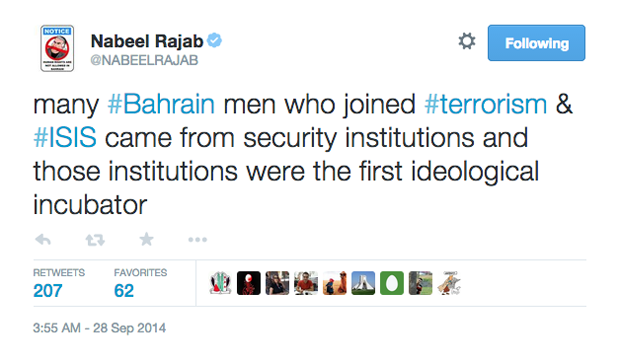
This week, prominent Bahraini human rights activist Nabeel Rajab was handed down a six month suspended sentence over a tweet in which both the country’s ministry of interior and ministry of defence allege that he “denigrated government institutions”. Rajab was only released last May after two years in prison, over charges that included sending offensive tweets. His experience is not unique in Bahrain. In May 2013, five men were arrested for “insulting the king” via Twitter.
Turkey
A former Miss Turkey was recently arrested for sharing a satirical poem criticising the country’s President Recep Tayyip Erdogan on her Instagram account. She is set to go on trial later this year. Turkey has a chequered relationship with social media, temporarily banning both Twitter and YouTube in the wake of the Gezi Park protests, in large part organised and reported through social media. In 2013, authorities arrested 25 individuals for spreading “untrue information” on social media.
Saudi Arabia
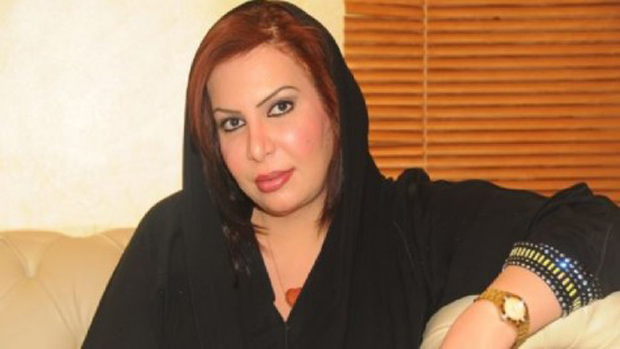
(Photo: Gulf Centre for Human Rights)
In late 2014, women’s rights activist Souad Al-Shammari was arrested during an interrogation over some of her tweets. The charges against her include “calling upon society to disobey by describing society as masculine” and “using sarcasm while mentioning religious texts and religious scholars”, according to the Gulf Centre for Human Rights.
France
![(Photo: « Source : Réseau Voltaire » [CC BY-SA 3.0 (http://creativecommons.org/licenses/by-sa/3.0)], via Wikimedia Commons](https://www.indexoncensorship.org/wp-content/uploads/2015/01/Dieudonné_Axis_for_Peace_2005-11-18.jpg)
(Photo: Réseau Voltaire [CC BY-SA 3.0], via Wikimedia Commons)
Following the series of terrorist attacks in Paris in early January, at least 54 people have been detained by police for “defending or glorifying terrorism”. A number of the cases, including against comedian Dieudonne M’bala M’bala, are believe to be connected to social media comments.
Britain

A 22 year old man was arrested in for “malicious communication” following Facebook messages made in response to the murder of soldier Lee Rigby, and another user was arrested after taunting Olympic diver Tom Daly about his dead father. More recently, police arrested a 19-year-old man over an “offensive” tweet about a bin lorry crash in Glasgow that killed six people. TV personality Katie Hopkins, known for her controversial tweets, was also reported to Scottish police following some tasteless tweets about about Scots. The incident prompted Scottish police the to post their now infamous tweet declaring they would continue to “monitor comments on social media“.
China
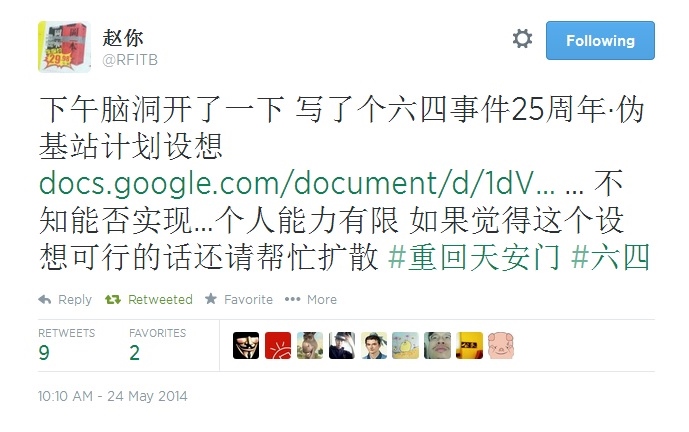
Online activist Cheng Jianping was arrested on her wedding day in 2010 for “disturbing social order” by retweeting a joke by her fiance. She was sentenced to one year of “re-education through labour”. Twitter is officially banned in China, and microblogging site Weibo is a popular alternative. In 2013, four Weibo users were arrested for spreading rumours about a deceased soldier labelled a hero and used in propaganda posters. The four were said to have “incited dissatisfaction with the government”, according to the BBC.
Australia

A teen was arrested prior to attending a Pink concert in Melbourne for tweeting: “I’m ready with my Bomb. Time to blow up #RodLaverArena. Bitch.” The tweet referenced lyrics from the American popstar’s song Timebomb.
India
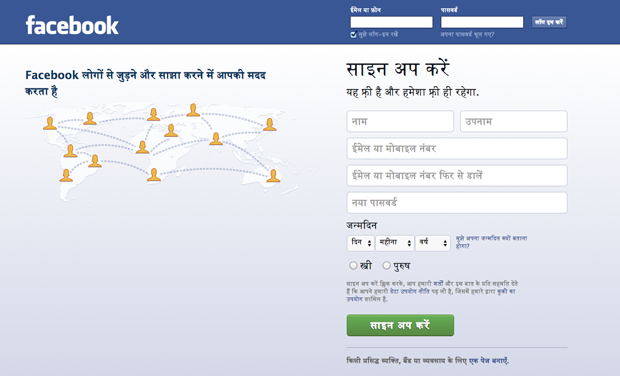
An Indian medical student was arrested in 2012 over a Facebook post questioning why her city of Mumbai should come to a standstill to mark the death of a prominent politician. Her friend was arrested for liking the post. Both were charged with engaging in speech that was offensive and hateful.
United States
Back in 2009, a New York man was arrested, had his home searched and was placed under £19,000 bail for tweeting police movements to help G20 protesters in Pittsburgh avoid the officers. According to Global Voices, it is unclear whether his actions were actually illegal at the time.
Guatemala
A man was arrested in 2009 for causing “financial panic” by tweeting that Guatemalans should fight corruption by withdrawing all their money from banks.
This article was posted on 23 January, 2015 at indexoncensorship.org


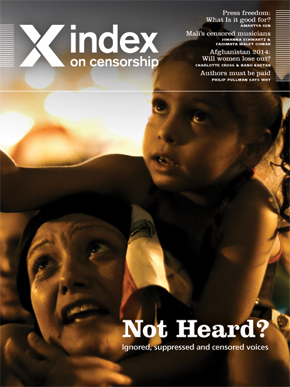




![(Photo: « Source : Réseau Voltaire » [CC BY-SA 3.0 (http://creativecommons.org/licenses/by-sa/3.0)], via Wikimedia Commons](https://www.indexoncensorship.org/wp-content/uploads/2015/01/Dieudonné_Axis_for_Peace_2005-11-18.jpg)




